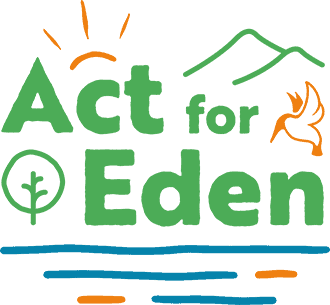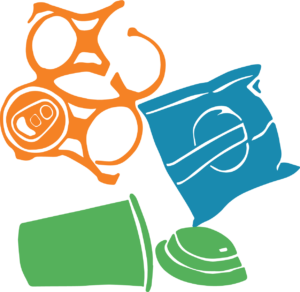Protect nature
The River Eden and its tributaries is a large and significant Site of Special Scientific Interest (SSI) and a Special Area of Conservation, (of European importance) designated as such due to the uncommon and rare species found here.
It’s one of the finest rivers in the UK for Atlantic salmon, bullhead, white-clawed crayfish and three types of lamprey (brook, river and sea). Otters swim and play throughout the catchment, and beavers have recently been re-introduced. Many of the species found in Eden’s rivers need clean, healthy water and a variety of habitats to survive and thrive.
Some species are very sensitive to pollution, such as freshwater shrimp and the endangered, white-clawed crayfish. Others, such as our keystone species, the wild Atlantic salmon need clean gravels to create redds, depressions where they lay their eggs. If the gravel is covered in algae, then the salmon can’t spawn.
A variety of healthy habitat is needed to sustain the abundant, diverse wildlife species that should be found in the Eden catchment.
However, our wildlife is in crisis and is declining at an alarming rate.
According to the World Wildlife Fund's Future of UK Nature, 30% of the UK's birds face extinction, pollinators are in decline and hedgehog numbers have plummeted.
Why?
Well, habitat loss is a major factor - and it is driven by people. It's often the result of land management practices (past and present) and the presence of historical barriers and other modifications made to river channels.
Barriers also make it nigh on impossible for invertebrates and fish to move or swim freely between the different types of habitats they need as part of their lifecycle.
Add to this relentless spread of invasive non-native species (with over 30 found in Eden), out-competing our native ones ... and you can see the battle nature faces to survive, never mind thrive!
It's not all bad news ...
River conservation charities such as Eden Rivers Trust, environmental organisations and government agencies (e.g. Environment Agency) and others are working together with farmers and landowners to create new habitat and improve the existing one, protect our endangered species and reintroduce those once thought lost forever from our landscape.
In Eden they are:
- restoring natural river processes such as re-meandering (re-wiggling!) rivers,
- removing artificial barriers such as weirs,
- re-wetting damaged peatlands,
- raising new woodlands and hedges using native species,
- reintroducing native species such as beaver and water vole,
- removing invasive species and raising awareness of the importance of check, clean, dry to improve biosecurity.
What can YOU do to protect nature near you?

U.N. Sustainable Development Goals
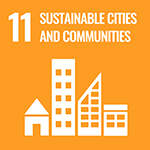
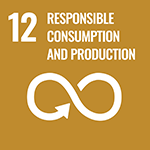
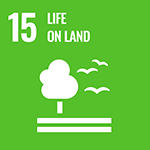
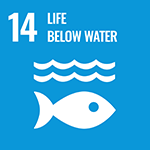
Protecting nature locally also makes a difference globally - contributing towards the Sustainable Development Goals (SDGs).
These are a set of 17 goals set out by the United Nations to focus efforts around the world in order to “achieve a better and more sustainable future for all.” (UN SDG website)
Although major actions are needed by governments, cities and local authorities, it starts with each and every one of us. By making a promise to Act for Eden, you are already living and working more sustainably – which is great news for our planet.
You can do it
Here's how
![]()
Look for the label
Be a savvy shopper:
We recommend only choosing seafood products with the blue MSC ecolabel.
The MSC (Marine Stewardship Council) is a not-for-profit organisation that works with fisheries, scientists and industry to make sure the World’s oceans are fished sustainably and help consumers find and buy certified sustainable seafood. The MSC does not certify any farmed fish products.
If you choose to buy farmed seafood, try to ensure products are certified by the Aquaculture Stewardship Council.
There are many other ‘ecolabels’ on fish products, many of which are a brand’s own label and don’t carry the same level of assurance of sustainability, may not be based on robust science, or have the backing of conservationists.
The Good Fish Guide in your pocket
Download the Good Fish Guide app on your phone for handy hints on choosing sustainable seafood when shopping or eating out. The Good Fish Guide is also available to download online
Be a savvy shopper:
Not all of the Good Fish Guide recommendations will be available with the blue MSC label of certification (for example they endorse the farming of Atlantic salmon), but we think it’s a great place to start – just remember to also look for the blue MSC logo (or ask if buying fresh from a fishmonger.)
Go natural
Keep your outdoor spaces safe for children, pets and wildlife by going chemical-free. Chemical pesticides and herbicides are designed to kill and they all contain hazardous substances. The Wildlife Trusts and Royal Horticultural Society (RHS) have some tips on gardening organically and other ways to keep pests at bay.
Be a savvy shopper:
Look carefully at the ingredients in your weedkiller and research whether it could be harmful to humans/wildlife.
Try to pick plants that are naturally more pest-resistant.
Check
… your equipment and clothing for mud, aquatic animals, plant material, seeds or other living organisms before you leave. Remove anything you find and leave it at the site.
Clean
… and wash everything thoroughly as soon as you can, paying particular attention to damp or hard to inspect areas. Use hot water if possible.
If you find clingers-on at home, wash them off away from other bodies of water or surface water drainage such as street drains (that may lead directly to rivers).
Dry
… all equipment and clothing (ideally, leaving them on a hard surface) for as long as you can before using elsewhere. Some invasive species can survive for over two weeks in damp conditions!
How does your garden grow?
Look after your garden soil because healthy soils grow better plants. Soils with plenty of free drainage (thanks to good root growth and the humble earthworm) retain more water, reducing the need for watering. Soil is a ‘living’ aerobic environment and a ‘good’ soil is 45% mineral, 25% water, 25% air and 5% organic matter.
Use of artificial fertilisers can actually be bad for your soil health, and too much can leach or wash into rivers and cause pollution.
Top tips:
Use natural soil conditioners such as leaf mulch, bark chippings, well-rotted organic manure, coir (from coconuts), green manure, make your own liquid feed from comfrey or nettles, organic chicken manure can also be a useful addition. Natural Grower is just one company that sells petrochemical-free, vegan, organic natural fertilisers and soil conditioners.
Be a savvy shopper:
Some organic fertilisers contain fish blood and bone, which it is best to avoid to ensure our seafood remains sustainable – see our promise, Eat sustainable seafood.
Do it yourself
Going out for a walk? Why not bash some balsam!
We’ve produced a handy guide to bashing balsam with everything you need to know to safely pull and bash this invasive plant. We’ve got hints and tips on balsam pulling technique – you don’t want it to re-root and grow again!
Ditch these alien hitch-hikers now so lovely native plants can thrive in your area.
